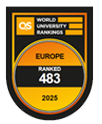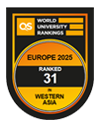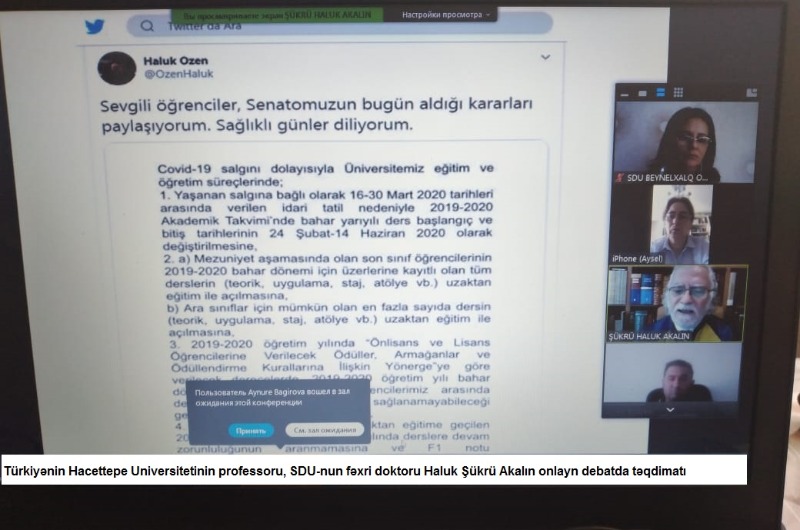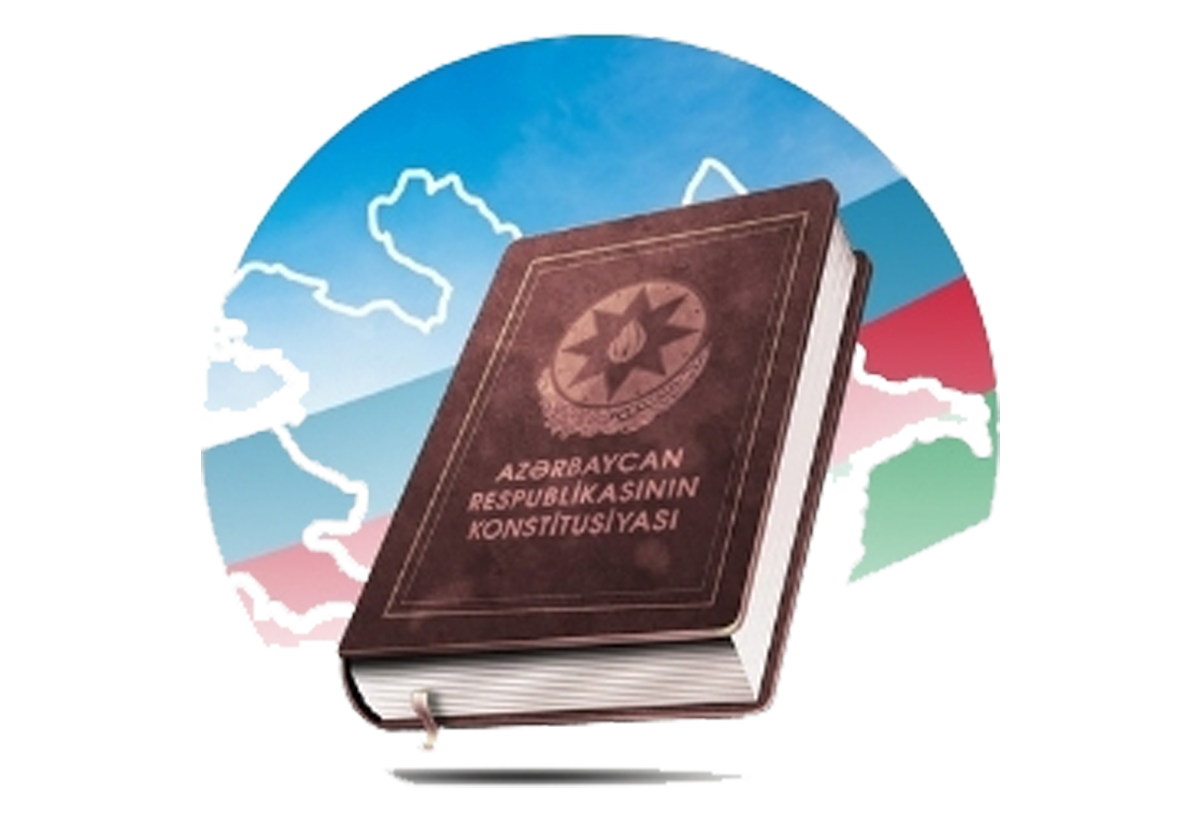SSU HOSTED AN INTERNATIONAL ONLINE DEBATE ON “ONLINE TEACHING OF NATIVE LANGUAGE IN HIGHER EDUCATION INSTITUTIONS AS A SPECIALTY SUBJECT: EXCHANGE OF EXPERIENCE”
On May 5, at the initiative of the Department of the Azerbaijani Language and its teaching methods of the Philological Faculty of Sumgayit State University, an international online debate took place on the topic “Online teaching of the native language as a special discipline in higher education institutions: exchange of experience”.
The debate was attended by representatives of Sumgayit State University, Baku State University, Azerbaijan State Pedagogical University, Azerbaijan Economic University, Ganja State University, Hacettepe University and Gazi University of Turkey, Eurasian National University named after L. Gumilyov of Kazakhstan and Karachay-Cherkessia State University of Russia.
The event was opened by the vice-rector for Science and Innovations prof. Ramazan Mammadov. He conveyed the greeting of the rector of SSU prof. Elkhan Huseynov to the participants of the debate, noting that the rector considers the discussions and exchange of experience on the topic presented to be very relevant and timely in the current situation and wishes the organizers and participants of the online debate success.
Prof. Ramazan Mammadov emphasized the importance of the discussion and said that due to the coronavirus pandemic and the introduction of quarantine regimes in all countries of the world, the educational process in educational institutions is implemented online. Classes are conducted using modern Internet programs as Zoom, Microsoft Teams, Moodle, WhatsApp, etc. The main topic of international debate is the exchange of experience on the current state, achievements and problems of online teaching of the native language, as a special discipline in Azerbaijani and foreign universities. The vice-rector spoke about the content and structure of educational programs, the need for innovative approaches to training and the positive results of the use of ICT, highlighting the factors that ensure the quality of the educational process.
Then, the dean of the Faculty of Philology, assoc. prof. Sevinj Hamzayeva hailed the participants. She wished success to the participants in the debate. In her speech, the dean once again noted that in connection with the introduction of quarantine, university education is carried out online using programs such as Zoom, Microsoft Teams, Moodle, Whatsap, etc. At our university, the first steps in this direction were taken in mid-March shortly after the temporary suspension of classes. On the faculties, using the WhatsApp, Microsoft Teams, Moodle, Zoom platforms, online classes were organized according to specially designed schedules for students of both levels of education. All educational materials, including electronic lectures, colloquiums and exam questions were posted in the Moodle, Microsoft Teams programs. From the very first lessons until today, students take an active part in online groups. Some of the students could not be involved in online education. The reason these students were not able to participate in online classes was their lack of uninterrupted access to the Internet, electronic means of communication to connect to the network, etc.
Afterwards, the participants were greeted by the moderator of the debate, head of the Department of the Azerbaijani language and its teaching methods, associate professor Boyukkhanim Eminli. She once again recalled the main topic of the debate and said that quarantine is not a holiday or a free time. Quarantine restricts social activities, but does not limit the educational process. Therefore, training continues remotely.
The first speaker was Professor of the University of Hacettepe, Honorary Doctor of SSU Haluk Shukru Akalin. He spoke in detail about the electronic system of the university in which he works, and answered questions from the audience. Assoc. prof. Sevinj Hamzayeva asked several questions about the electronic system of the University of Hacettepe and the organization of training on this system. The information provided by the professor was very interesting and informative. Pleasant moment in the speech of prof. Akalin was that he appeared before an online audience in the mantle of an honorary doctor of SSU, which was rated as great respect and attention to our university, for which the university representatives expressed special gratitude to him.
One of the participants in the debate, professor of Gazi University in Turkey Nejati Demir noted that he has already taught at several universities around the world and still teaches online. He spoke about the problems of online education, the difficulties of students participating in online classes, as well as about international experience in this area.
Professor of Eurasian National University named after L.N. Gumilyov in Kazakhstan Sholpan Jarkinbekova made an interesting presentation and showed slides about online learning at her university, and then answered questions from the audience.
The debate was also attended by associate rofessor of Karachay-Cherkessia State University of Russia Tatyana Khapchayeva, head of the Department of Speech Culture of Baku State University, Professor Ilham Hajiyev, dean of the Philological Faculty of Azerbaijan State Pedagogical University Professor Mahira Huseynova, senior lecturer of the Department of Azerbaijani Language of Ganja State University, PhD Sevinj Gambarova. They, like their colleagues, shared interesting information about online learning at their universities.
The debate participants listened with great interest to the reports of associate professors of the Department of Azerbaijani Language and Speech Culture of the Azerbaijan Economic University, Aynur Gadimaliyeva and Chinara Gahramanova, who shared their experience in the field of distance education. Assoc. prof. Aynur Gadimaliyeva also spoke about the quality of education, which in the current situation due to the pandemic is being carried out with the help of existing programs.
Summing up, the participants noted that for a comprehensive disclosure of the topic and solving the problems of a two-hour discussion is clearly not enough. However, the information and knowledge gained through the exchange of experience in the field of online education can become a guideline for solving the issues in the future.
At the end of the discussion, all participants thanked the administration and teachers of SSU for organizing international debates on a topic that is currently very relevant for all countries.
Translation: Linguistic Center



